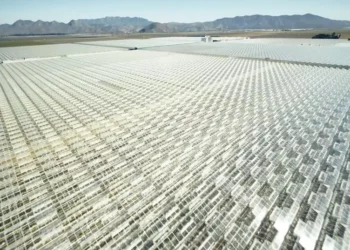Aleafia Health became the eighth cannabis-related company in Canada to receive debt protection under the Companies’ Creditor Arrangement Act after the medical cannabis provider failed to complete a merger with U.S. company Red, White and Bloom.
“I think it’s just tough times in the cannabis industry generally, whether you’re in Canada or the United States,” said Ranjeev Dhillon, a partner at McCarthy Tetrault in Toronto, who specializes in cannabis. “We’re certainly seeing rocky times in Canada for sure.”
As part of the CCAA process, Aleafia said July 25 that it accepted a debtor-in-possession loan from Red, White and Bloom (RWB) for $6.6 million, which is intended to cover Aleafia’s outstanding debt and cover the costs of continued operation while the company goes through restructuring.
Canadian companies crushed by oversupply, taxes
Canada’s CCAA allows companies with at least $5 million in debt to enter into a restructuring phase while being protected from its creditors. The law, enacted in 1933, is a means for companies to avoid bankruptcy or receivership.
Legal adult-use sales in Canada started in mid-October 2018. In the years that followed, cannabis flourished throughout the country, leading to a massive oversupply and sharp drop in prices. In the wake of those events, many cannabis companies found themselves needing protection from massive debt. In 2022, of the 35 companies that obtain CCAA protection, 14 of them were cannabis related. So far, 2023 appears to be headed in that same direction as Aleafia is the eighth cannabis company to receive CCAA protection, with 35 total CCAA approvals already this year.
“There’s certainly been a trend of companies in the cannabis industry using the CCAA for credit protection. I don’t think that trend is going to slow down any time soon. It’s a challenging capital and debt market. The capital markets are just overall, very tough, particularly tough in the cannabis industry in Canada,” said Dhillon.
“Compared to the U.S., we have much more limited debt options just generally overall, and that applies in the cannabis industry as well. We’ve also got very high tax rates on cannabis products, which is a challenge,” he continued. “There’s this pressure on pricing in an already relatively low-margin business. So it’s not a surprise that we’ve seen this trend, and I think that trend will continue for the rest of this year.”
Aleafia/RWB merger blocked by debt-holders
Originally, Aleafia hoped to merge with RWB through a stock swap that would see RWB acquire all of Aleafia’s outstanding stock in exchange for RWB shares at a rate of 1:0.35. The deal was announced June 7.
The planned merger crashed into a roadblock when more than a third of the shareholders of Aleafia Health’s debt refused to approve the merger deal, the company said in a July 14 press release. This comes less than a month before Cresco and Columbia Care missed their June 30 deadline to finalize what would have created the largest cannabis MSO in the United States.
While Aleafia representatives did not respond to an emailed request for comment, in its July 14 release the company noted, “Aleafia does not intend to comment further with respect to the ongoing strategic review process unless and until it determines that additional disclosure is appropriate in the circumstances and in accordance with applicable securities laws.”
The company said that in light of financial pressures resulting from obligations owing to creditors (including under the Aleafia Senior Secured Loan Agreement) and challenging factors impacting the cannabis industry and the termination of the Letter Agreement, among other things, the board of directors of each member of the Aleafia Group determined that it was in the best interest of the company and its stakeholders to seek creditor protection under the CCAA.
“After the close of markets yesterday, in light of Aleafia’s financial position, RWB issued demand letters and notices to enforce security under Section 244 of the Bankruptcy and Insolvency Act and provided Aleafia with the aforementioned DIP Loan to allow Aleafia to proceed with the Aleafia CCAA Proceedings,” said a July 25 press release from RWB.
Initially, the merger letter of agreement paid off three series of debtors for a total of $6 million in value, but more than a third of those debt holders disapproved of the deal, leaving the companies without the two-thirds majority it needed.
“As part of the letter agreement, a chunk of the debt was assigned to Red, White and Bloom and that sort of gave them the ability to have the optionality, it would appear, to either move forward with the transaction or potentially use their debt position to use CCAA to acquire the company. And it looks like that’s ultimately what they’re trying to do here,” said Dhillon. “It’s not unusual in the cannabis industry to have deals that require restructuring that don’t get approved. This was a little bit interesting because the termination happened so quickly after they announced the deal.”













